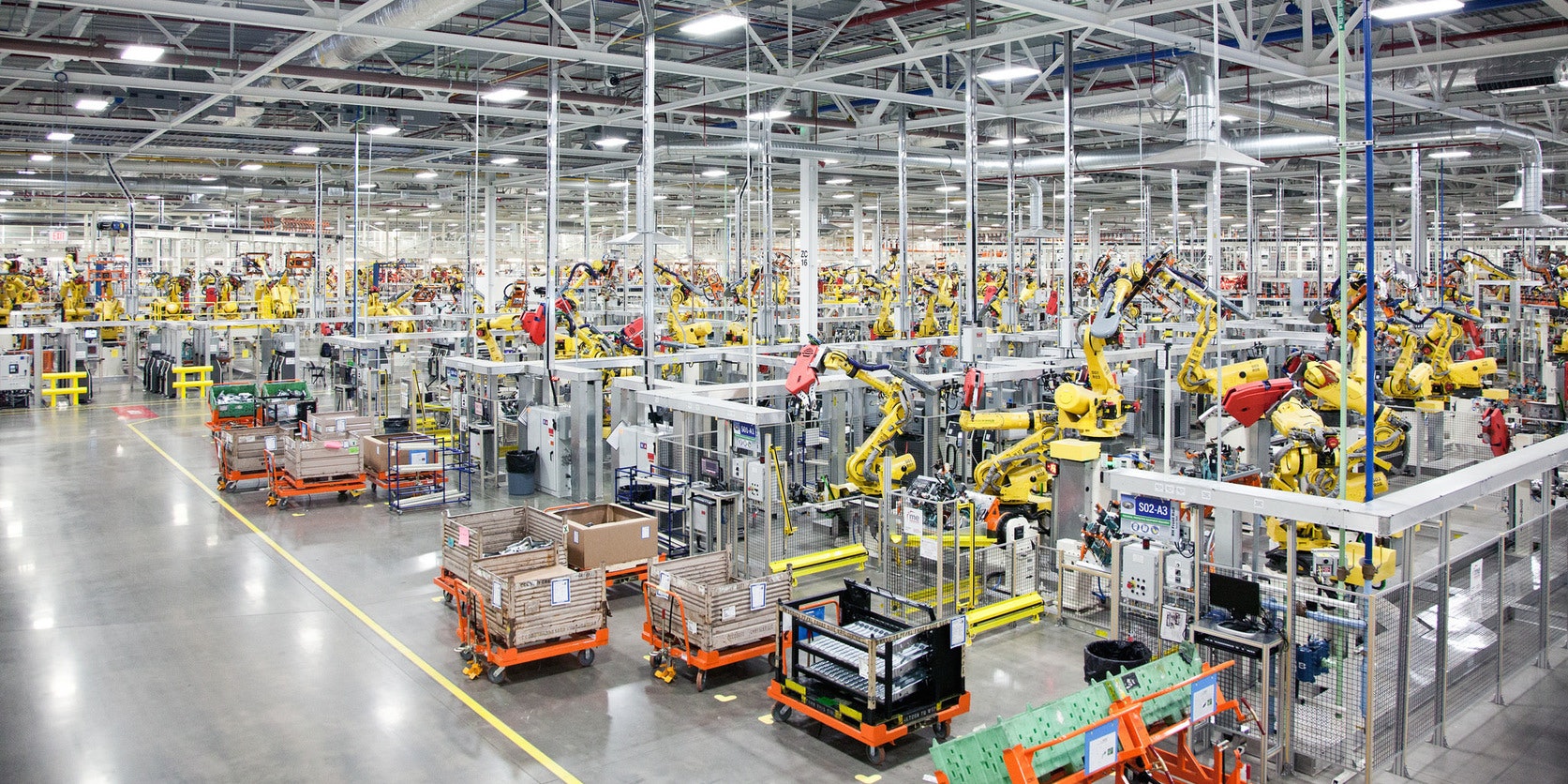 |
| Manufacturing site |
The intriguing and insidious intrusion of robots (note that robot is a piece of hardware and/or software that execute repetitive tasks!) in our daily lives is one of the mark of the ongoing 4th industrial revolution.
New professions related to the ongoing digital transformation will appear, but how many and most importantly at what pace? If factories turn day and night without workers, will machines finance the national social protection system? From where will governments collect their revenues?
Are we moving from a "labor" income to "capital" income economy? What are the consequences on the national economies?
The revolution in artificial intelligence is only just beginning and will probably be
costly in jobs. The economists community is clearly divided. Automation has become a general concern over the future of manufacturing and the global economy as a whole. Many fear that the economic well-beings of vast populations are at risk in the coming years. A report from Deloitte indicated that 35% of jobs will be in jeopardy over the next 20 years alone.
Uber self-driving taxis are already driving in Tempe, Arizona (one recently crashed!) and autonomous trucks are being tested on German motorways; what will become of the millions of truck, bus, metro, train, taxi and truck drivers? Aircraft engine manufacturer Rolls-Royce has announced a program which aims to sail by 2020 totally automatic boats, without crew and captain.
We are even starting the discussion around pilot-less airplanes that can save billions of dollars for the airlines companies.
Supermarkets equipped with sensors and optical readers will replace cashiers. Consumer goods are ordered online and can be delivered by standalone vehicles. Already in Amazon's warehouses, the storage and shipping of goods are fully automated. Even the cashier is redundant in the newly launched AmazonGo store in Seattle.
Automation will certainly affect the job market, a recent report from Deloitte in partnership with Oxford University, is suggesting that 35% of jobs were at risk over the next 20 years.
Apple and Samsung supplier Foxconn has reportedly replaced 60,000 factory workers with robots. iPhone maker replaced more than half of its workforce with robots since iPhone 6 launch.This Deloitte report states that " About a quarter of jobs in the United Kingdom are threatened by automation over the next two decades, including more than two million jobs in the retail trade, one and a half million in transport and storage. Secure data technology called Blockchain could eventually destroy thousands of jobs in banks, law firms and notaries.
But for many economists, these widespread productivity gains, lower transport costs, are expected to create new wealth, new industries and new jobs. In the preceding industrial revolutions (electricity, computers, the Internet), new jobs have replaced old ones, but the transition took place over several decades.
There is simply no evidence at the moment that the current industrial revolution will be any different.
Is this pattern of creative destruction theorized by Joseph Schumpeter?
Robots, Artificial intelligence (AI) are likely to disrupt a large number of industries very quickly without allowing society time to adapt to changes. Will the speedy global capitalism allow time for vocational training to adapt to this new situation? It is to be feared that the fourth industrial revolution destroys more jobs than it creates. It is not sure that drivers, handlers or licensed workers in China or India are rapidly transforming into digital specialists.
To be continued...
Join the conversation!
Apple and Samsung supplier Foxconn has reportedly replaced 60,000 factory workers with robots. iPhone maker replaced more than half of its workforce with robots since iPhone 6 launch.This Deloitte report states that " About a quarter of jobs in the United Kingdom are threatened by automation over the next two decades, including more than two million jobs in the retail trade, one and a half million in transport and storage. Secure data technology called Blockchain could eventually destroy thousands of jobs in banks, law firms and notaries.
But for many economists, these widespread productivity gains, lower transport costs, are expected to create new wealth, new industries and new jobs. In the preceding industrial revolutions (electricity, computers, the Internet), new jobs have replaced old ones, but the transition took place over several decades.
There is simply no evidence at the moment that the current industrial revolution will be any different.
Is this pattern of creative destruction theorized by Joseph Schumpeter?
Robots, Artificial intelligence (AI) are likely to disrupt a large number of industries very quickly without allowing society time to adapt to changes. Will the speedy global capitalism allow time for vocational training to adapt to this new situation? It is to be feared that the fourth industrial revolution destroys more jobs than it creates. It is not sure that drivers, handlers or licensed workers in China or India are rapidly transforming into digital specialists.
To be continued...
Join the conversation!

